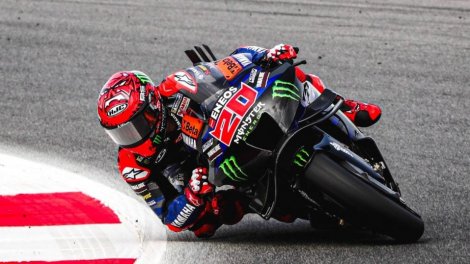
Malan Mane: For a long time this name was known only in his country, Guinea-Bissau, by a generation that lived the liberation struggle, touched the spirit of Amilcar Cabral who was his breath and thought, then experienced independence, his dreams … and his disappointments. A handful of enthusiasts, too, who have heard this name attached to a piece that has gone down in history: “Sol Maior Para Comandante,” a wonderful chanson de geste that recounts the arrival of Cabral’s funeral procession, and remembers his life as his legacy. A monument inspired by Pembia Jazz’s “Looking Back in Time” (a tribute to Samori Toure), a chant so powerful that it would reverberate in Guinea-Bissau at every important event – from the coups d’état that was so numerous in this country to where internal strife within the military disturbed political life so regular.
Malan Mané: For several decades he disappeared from the radar, went into exile, like other members of Super Mama Djombo, when the political winds turned bitter, and the favorite orchestra of President Luis Cabral (half-brother of Amilcar), they became a triquard. Malan stops in Paris in 1990, survives odd jobs, and stays in workers’ homes. In the country, most of those who sang “Sol Mayor” at get-togethers believed whoever sang it had died, clinging to sepia history-book pictures.
A little more than thirty years after this song was recorded, Super Mama Djombo was discovered by a young French writer, who was then managing the French alliance of Ziguinchor in southern Senegal – less than 20 kilometers from the Bissau-Guinea border. Or rather, he meets one of his former guitarists, Serivo Panora, who tells him about the orchestra’s great years, when the Bissau nights rocked to the tunes of this band formed in the spirit of the War of Independence, ready to sing freedom. And the spirit of the liberation struggle that impressed the whole world. It was Adriano Achuche, who had returned from the war in Mozambique, who would give the orchestra its discipline, musical precision and political depth. The name of the orchestra itself was a complete program: Mama Djombo, from the name of a strong fetish, hidden in the forests bordering the Cacheu River, through which the Portuguese would never be able to penetrate. The sequel is a glorious musical history, carried by a group that will tour the world, and notably perform at the World Youth Festival in Cuba in 1978 (a concert recorded on disc). And then, in 1979, a month of recording in Lisbon, in the Valentim de Carvalho studio, where the orchestra immortalized nearly 70 songs, which would provide material for the release of LPs. One day the conductor told us they were all yet to be published. Among those who have experienced the joys of vinyl and the airwaves is, of course, “Sol Maior Para Comandante,” sung by Malan Mané.
So Sylvain Prudhomme, under the guidance of his friend Serivo Panora, was looking for the singer Sol Mayor, in the same way as the previous members of the group who remained in Bissau, and decided to tell their fate in a wonderful novel: the great (l’Arbalète Editions). Yes, because even the members of this heroic adventure have fallen into oblivion, living for some in ruse. In Paris, Malan found Mane, who told him about dozens of songs he had written, without reconnecting with the theater or the studios. dream recording. To be able to return to the country as he left?
This is how the idea for this album came about Vigo de Leon (Ibn al-Assad), I gave birth after several years of pregnancy and doubts. It was recorded in 2022 in Lisbon, in the Valentim de Carvalho studio, where Super Mama Djombo recorded 43 years ago. As a bonus, two veterans of the original orchestra: Adriano Fonseca “Tondo” the legendary guitarist, and Armando Vaz Pereira the percussionist, who were added by Sago Cassama – faithful companion on rhythm guitar, and their younger brothers Tony Pereira on drums and Samba Empalo on bass. And to accompany them, Fabian Girard – one of the musicians of Arat Kilo – for realization.
Malan, whose voice remains youthful, recounts the fruits and lessons of these decades of silence and exile. “Tubabudu sio” is a good example of this, as it chronicles—over a menacing beat engineered by the two guitars—the erosion of solidarity in white country.
Living in the white country
It makes you lose your mind (…)
In Europe, I see some who no longer help their loved ones
I see some say: “It’s like that in Europe.”
They look at you and say, “We’re getting out of it, so get out of it.”
Then there’s “Ricado” (Letter), arguably the most beautiful song of all, a nostalgic ballad crafted with love and bitterness. Bitterness is seeing how the country – and especially the leaders of the Liberation Army, have betrayed the country’s ideals. The title opens with an introduction typical of Mama Djombo from yesteryear, exuding soulful blues while Malan’s lyrics evoke Pidjiguiti, named after the capital’s port where the Portuguese colonial army put down a dockworkers’ strike in 1959, a bomber of the liberation struggle.
Oh our guinea, it hurts
When Pidjiguiti asked for help
The liberation struggle to defend Guinea began
What shall we tell Pidgigeti today,
If the weapons of liberation kill the children you liberate?
I ask you parents
What is left of the fight?
Essentially, as the pieces go by, their orchestrations neatly truncated (sometimes with Mamane Keita’s voice in the backing vocals), we certainly find part of the legacy of Mama Djombo, but above all, everything that Silence de Malan said, remaining true to himself and to the spirit of the Cabral years For Captain Cabral. A kind of straightforwardness and dignity, an indomitable pride, even after all this time, even after the disappointments I’ve faced. A lesson in patience, hopefully, that flows over the disc like notes distilled by Tundu—less snappy than before, but still just as well. As for Malan, he finally returned to Guinea-Bissau for a few days in 2019, at the invitation of the candidate of the African Party for the Independence of Guinea and Cape Verde (PAIGC, formerly One Party) for the last meeting of his presidential campaign.
At the airport, no one is waiting for him but his old friend Zé Manel, the historical drummer of Super Mama Djombo. But on the evening of his arrival, in front of thousands of people, the political leader invited him on stage to sing Sol Mayor. The scene, which couldn’t be more exciting, is featured in the very good movie Almighty Mama Djombo (tractor here), directed by Sylvain Prudhomme and Philippe Biziat, and produced by Samuel Thibault (Olio Films), who also hosted Album Malan on his Archie Ball label. It tells the story of Malan’s adventure, the forgotten hero’s return to his native land, and his journey to the Kobiana region, seeking boons from the spirit of Mama Djombo that reigns there. And if we never see the invisible spirit hidden in the bushes, in the stadium of Bissau, then this is indeed a human tide, made up of thousands of clearly visible eyes and mouths, which bear Malan’s words ” Sol Mayor Para Comandante”.
No, Malan is not dead. Still the son of a lion.
Tout Puissant Mama Djombo, directed by Sylvain Prudhomme and Philippe Biziat, will be broadcast on Canal Arte on July 2, 2023, and then available for replay.







